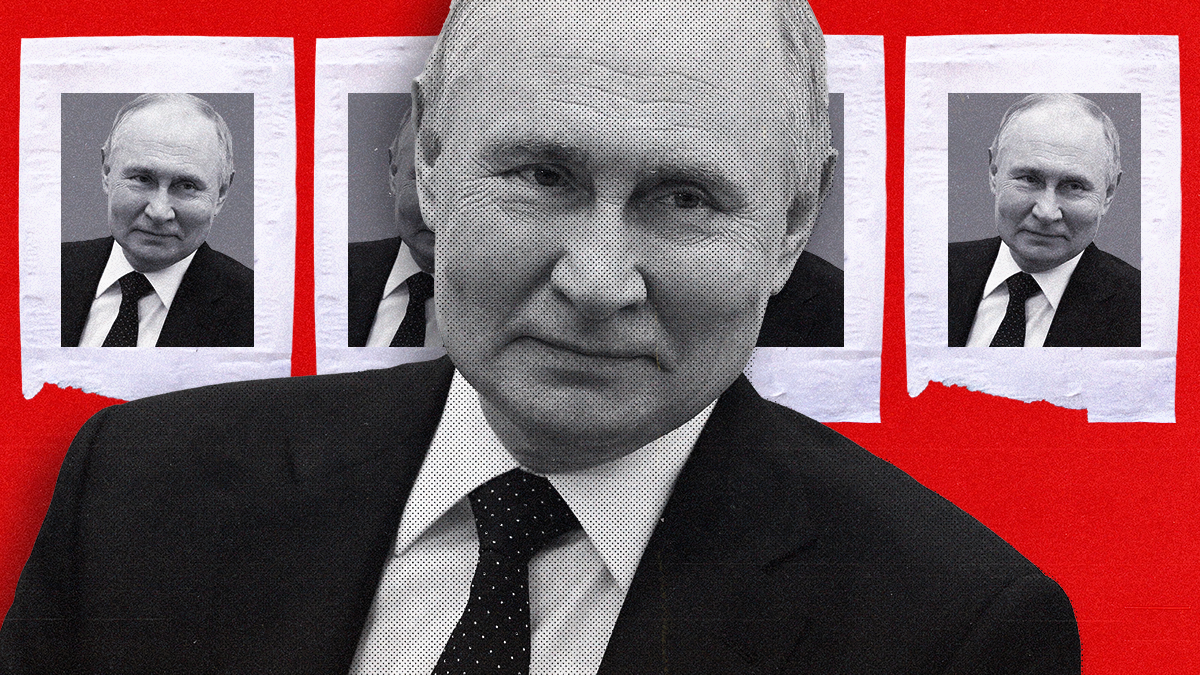It’s been two years since Vladimir Putin ordered the full-scale invasion of Ukraine, which makes it as good a time as any to ask a simple question: Is he winning?
Here’s the best argument we can think of for why the answer is “da.”
Just to be clear, it’s true that if Vladimir Vladimirovich thought it would take barely a week to topple the Ukrainian government, conquer Kyiv, and ram the country back into the Kremlin’s own courtyard of influence — he was wrong. In fairness, he’s certainly not the first Russian leader to misjudge the likelihood of a “short victorious war.”
Still, the lines in the steppe are what they are. Even after Ukraine’s successful pushback against the initial invasion, Russia controls more than twice as much Ukrainian land as it did at the start of the war, when Moscow already held Crimea and a decent swath of the Donbas. Russian boots are currently on the ground in about a fifth of Ukraine’s internationally recognized territory. In EU terms, that would be like an occupation of France and most of Spain.
Ukraine’s vaunted counteroffensive of 2023, of course, fell short and the situation today is a grinding battle of attrition in which the Kremlin, grimly and simply, has more bodies to throw at the front. Just last week, Russian forces made their first breakthrough in months, taking the strategic Donbas city of Avdiivka.
It’s true that even small advances have taken a huge toll on the lumbering and inefficient Russian military. But even an estimated total of 45,000 Russian dead – and as many as eight times as many wounded, totals that dwarf any Russian losses since World War II – hasn’t rattled popular support in a country where the Kremlin controls the media, most of the casualties are from remote regions, and penalties for protests are severe.
What about the economy? Russia has weathered severe Western financial and technology sanctions – in part because it’s been able to continue selling oil and gas to the world, and in part because Putin has dragged his country onto a war footing, tripling pre-war defense expenditures. All of that helped GDP to expand by 3% last year, and the IMF predicts 2.6% this year – not bad for a country under quite literally thousands of sanctions.
When it comes to weapons, two years of war have certainly depleted Russia’s arms caches, but pariahs like Iran, North Korea, Belarus, and Syria have happily sent Putin the shells, drones, and missiles he needs to keep firing at the front lines. Just this week, it emerged that Tehran has been sending hundreds of ballistic missiles to Moscow.
Meanwhile, Ukraine is in a tough spot. Kyiv is increasingly struggling to find the men and the ammo to defend its current positions, let alone push back Russian forces.
Part of the reason Kyiv can’t get the weapons it needs, of course, is that Ukraine’s once-united Western backers are now suffering from “Ukraine fatigue.”
The EU just barely pushed through a fresh financial support package that will help Kyiv to keep the lights on. And Putin can only delight in the ongoing failure of the US Congress to approve further military aid for Ukraine.
To date, the $42 billion in US military aid dwarfs that of all other countries combined. So while those pesky Czechs may now be scrounging together a few months’ worth of artillery shells for Ukraine, Putin believes that without Uncle Sam’s help, Kyiv would fold within “a week.”
Add to all of that the very real possibility of the world’s most prominent Putinophile, Donald Trump, returning to the US presidency this fall, and it’s not hard to see why Putin really is, despite everything, kind of sort of… winning.
He just needs to do one thing: wait.
The way things are headed now, it’s not unreasonable for him to assume that, before long, Ukraine will suffer a deficit not only of men, money, and materiel, but also morale. That will open the way to further gains that can force Kyiv and its Western backers to accept Putin’s terms.
That all, at least, is the argument for why Russia – despite all – is “winning.” Stay tuned for tomorrow’s counterpoint, which will ask: What exactly is Vladimir Putin really “winning”?



















